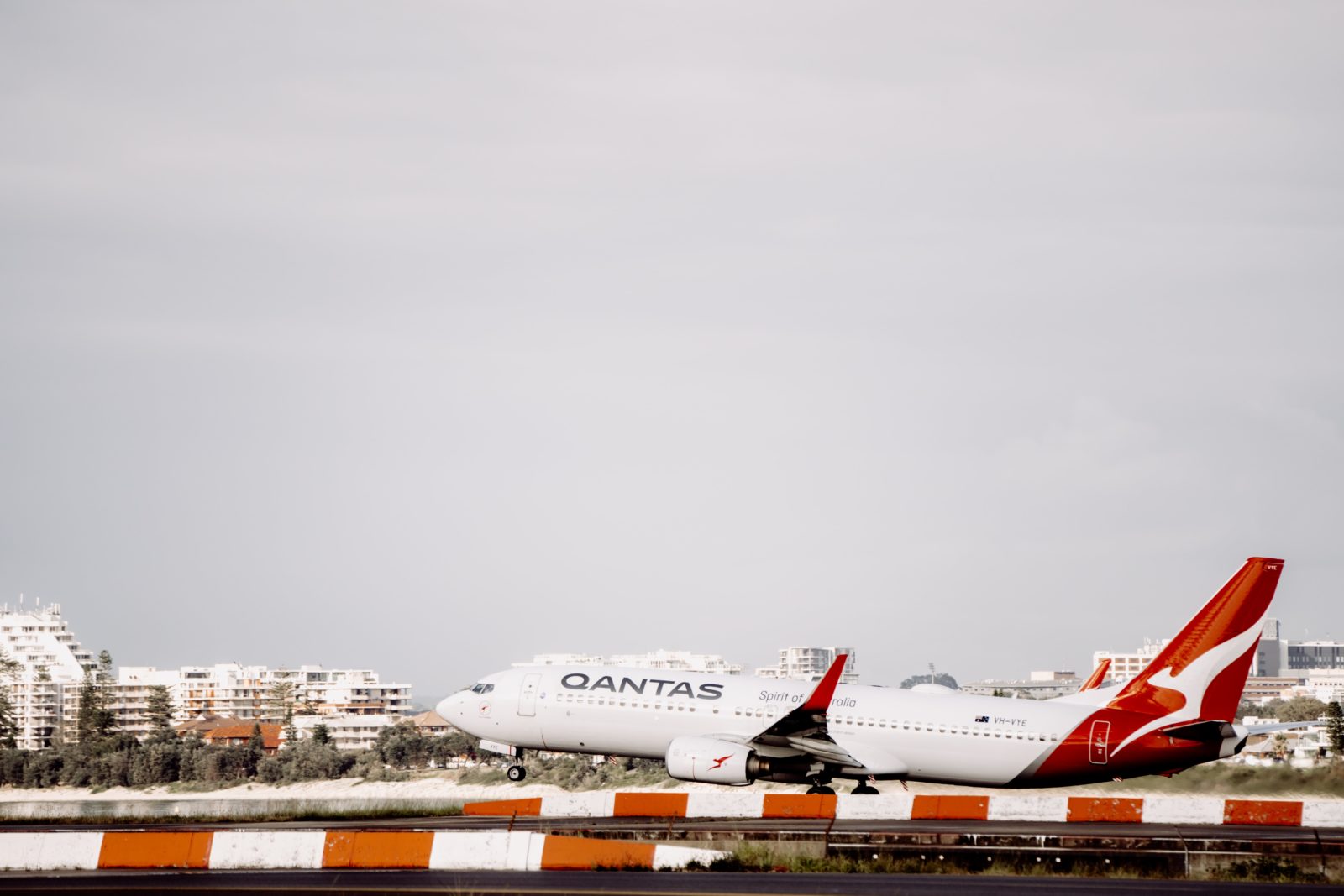In a watershed moment for trade unions and their plight against outsourcing, the Federal Court has delivered its decision in Transport Workers Union of Australia v Qantas Airways Limited.
On 30 July 2021 the Federal Court held in favour of the Transport Workers’ Union that the commercial outsourcing arrangements entered into by Qantas amounted to adverse action in breach of the Fair Work Act. Justice Lee found that Qantas failed to prove that its decision to outsource its ground handling work was not at least substantially motivated to avoid future industrial action.
The decision is likely to have significant ramifications to the industrial landscape and outsourcing arrangements in Australia.
The Facts
In 2020 Qantas decided to outsource its ground handling services at Australian airports, which included baggage handling, grounds services and plane services (the outsourcing decision). The decision resulted in up to 2,000 workers being made redundant (the affected employees).
The outsourcing decision was foreshadowed by the fact that the majority of the affected employees were members of the Transport Workers’ Union of Australia (TWU) and Qantas’ enterprise agreements were not due for renegotiation until the latter half of 2020.
The Legal Position
Part 3 – 1 of the Fair Work Act 2009 (the Act) contains a number of general protections provisions which aim to protect employees and independent contractors against adverse action taken because of a ‘prohibited reason’.
Under the Act, the following prohibited reasons were relevant to the TWU’s case:
- Section 340 which provides that an employer must not take adverse action against another person because inter alia, the other person has a workplace right or to prevent the exercise of a workplace right;
- Section 346(a) which provides that an employer must not take adverse action against another person because inter alia, the other person is a member of an industrial association.
‘Adverse Action’ is defined under section 342 and includes action taken by an employer or principal against its employees or contractors that alters their position to their prejudice.
The Act presumes that adverse action was taken because of a prohibited reason, unless proven otherwise. The employer thus bears the onus of proof that the action was not taken for reasons which included a prohibited reason (reverse onus of proof).
Legal Arguments
The case put by the TWU was that one of the substantial and operative reasons for making the outsourcing decision was because:
- the employees were members of the TWU in breach of s 346(a) of the Act; or
- either they had various workplace rights or to prevent them from exercising those rights, in breach of s 340 of the Act, which comprised of:
- the benefit of entitlements conferred by Qantas’ enterprise agreements;
- the ability to participate in enterprise bargaining;
- the ability to engage in protected industrial action for the purpose of supporting or advancing claims in relation to a proposed enterprise agreement.
It was further alleged by the TWU that Qantas leveraged the debilitating effects of the COVID-19 pandemic to implement the outsourcing decision. It was alleged that the reduced fly levels and stand-downs associated with the pandemic meant that the affected employees had no ability to bargain or participate in protected industrial action.
Qantas contended that the outsourcing decision best promoted the commercial interests of the company. It was further submitted that a decision could be predicated on a number of positive and negative factors without those factors becoming a ‘substantial or operative’ reason for the decision.
Did Qantas Discharge the Reverse Onus of Proof?
It was incumbent on Qantas to prove that a ‘substantial and operative’ reason for its outsourcing decision did not include a prohibited reason.
Ultimately, the Court found that Qantas failed to discharge the reverse onus of proof.
The decision-maker
The Court rejected the TWU’s submission that in order to discharge the reverse onus of proof, Qantas was required to lead evidence of the reasons and purposes of all persons who “were involved and contributed to the ultimate decision.” This submission was in part motivated by the anatomy of the corporate decision-making process which typically involves the input of a number of individuals.
Justice Lee held that it was not necessary to rely upon every piece of evidence that might arguably influence the reasoning of a decision.
In tandem with the principled approach, the relevant inquiry into the substantial and operative reasons for an action calls for a subjective assessment of the “mental processes of the person responsible for the action”.[1] Where a number of individuals were involved in the decision-making process, this inquiry focuses on the conscious reasoning processes of those who had a “material effect on the ultimate outcome” of the decision.[2]
The Court found that the sole operative decision-maker was Mr Andrew David, the Chief Executive Officer of Qantas Domestic and International. While Lee J accepted the relevance of the views and advice of other individuals involved in the decision-making process, which motivated Mr David’s decision, Mr David remained the decision-maker for the purpose of the prohibited reason. As his Honour emphasised:
“It is well in this case to focus on a causal inquiry into the reasons of Mr David at the time the adverse action was taken, and whether Qantas has proved what it needs to prove in relation to Mr David’s reasons (taking into account the whole of the evidence including the relevance of the motivations to Mr David’s decision making of Mr Jones, who worked so closely with him).”[3]
The ‘prohibited’ reasons
There was no doubt that the imperatives of the outsourcing decision as put by Qantas, namely to “avoid unnecessary capital expenditure, improve flexibility and reduce costs” were objectively cogent commercial reasons.[4] However, the Court was not satisfied that the decision to implement these imperatives was unaffected by the operational disruption occasioned by the COVID-19 pandemic, which created a ‘vanishing window of opportunity’.[5] Absent the unusual concatenation of events presented in 2020, it was found unlikely that the decision would have been implemented in the foreseeable future.
Furthermore, his Honour held that the fact that the existing enterprise agreements had yet to reach their nominal expiry dates was clearly a further factor which motivated the decision to make the outsourcing decision before an inevitable backlash of protected industrial action.
On a final point, in reaching his conclusion, Lee J was critical of the evidence led by Qantas which failed to discharge the reverse onus of proof. His Honour expressed particular concerns about the deficiencies in Qantas’ affidavit evidence, especially as they related to industrial relations advice about the proposed outsourcing.
“Further, despite the vast array of material included in the court book (most of which was not received into evidence), it is noteworthy that some documents one might intuitively expect to exist, were not created.”[6]
The deficiencies alluded to by his Honour were in relation to the lack of any “real time” documentary evidence that disclosed the implementation of the outsourcing decision. In particular, there were no documents recording oral communications by way of file notes or handwritten notes that would have divulged consideration of any timing risk of open enterprise agreements or protection industrial action in 2021. There was also no documentary evidence of the meetings of the Group Management Committee (GMC), the committee designed to provide feedback on risks and opportunities arising from proposals being considered for implementation by senior managers.[7] His Honour was likewise surprised by the absence of any notes or minutes from the GMC Sub-Committee, which dealt with the implementation of the proposed outsourcing plan.[8]
The Outcome
On 25 August 2021, his Honour delivered a further judgment on the form of declaratory relief to me made.[9] In its earlier submissions, Qantas contended that any declaratory relief should only extend to employees who were members of the TWU. However, Lee J decided that a declaration that Qantas engaged in contravening conduct should encompass all employees covered by the enterprise agreements, not just union members.
As was observed by his Honour, TWU’s pleadings defined the “affected employees” as Qantas “employees [who] perform baggage handling, ramp and related services at the [relevant] airports” and QGS “employees classified as airline services operators and co-ordinators [who] perform work servicing [QGS’] contract with Qantas at the [relevant] airports”. Moreover, all employees covered by Qantas’ enterprise agreements were capable of participating in protected industrial action or a protected action ballot, despite the fact that they would not need a bargaining representative to do so.[10]
Following the judgment delivered on 25 August 2021, Qantas has indicated it will lodge an appeal against the principal judgment.
Lessons
Pending an appeal by Qantas, the decision has significant implications for the role outsourcing plays in Australian businesses. Significantly it will force businesses to scrutinise the integrity and lawfulness of their decision-making process. The decision also highlights the importance of businesses maintaining written records of the motivations and reasoning behind their decision.
Our Employment Team is here to assist if you have any queries or would like to discuss further.
[1] Board of Bendigo Regional Institute of Technical and Further Education v Barclay [2012] HCA 32; (2012) 248 CLR 500 at [140] 544.
[2] Kodak, in Construction, Forestry, Mining and Energy Union v Clermont Coal Pty Ltd [2015] FCA 1014.
[3] Transport Workers’ Union of Australia v Qantas Airways Limited [2021] FCA 873 at [304].
[4] Ibid at [257].
[5] Ibid [201].
[6] Ibid [20].
[7] Ibid [22].
[8] Ibid.
[9] Transport Workers’ Union of Australia v Qantas Airways Limited (No 2) [2021] FCA 1012.
[10] Ibid [29].
Article prepared by: Margaret Gotsopoulos, Graduate & Sarah Cappello, Partner





































































